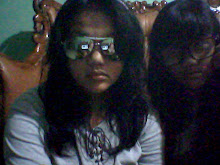Home
»Unlabelled
» Read Online A MOUTHFUL OF TONGUES HER TOTIPOTENT TROPICANALIA Paul Di Filippo Books
By
Sisca R. Bakara on Tuesday, May 14, 2019
Read Online A MOUTHFUL OF TONGUES HER TOTIPOTENT TROPICANALIA Paul Di Filippo Books
![]()

Product details - Hardcover 184 pages
- Publisher Wildside Press (April 1, 2002)
- Language English
- ISBN-10 9781587155062
- ISBN-13 978-1587155062
- ASIN 1587155060
|

A MOUTHFUL OF TONGUES HER TOTIPOTENT TROPICANALIA Paul Di Filippo Books Reviews
- Move aside 50 Shades of Grey, there's a new contender in town! di Filippo's erotic odyssey, carefully seminated to offend certain demographics, is a loving screw you to taboos left and right.
After a single night of psyche shattering tribulations, Kerry makes a decision that forever changes herself and the world. A beautiful literary accomplishment in itself, A Mouthful of Tongues is a less campy, but no less experimental extension of the themes Di Filippo explored in his short story collection, Ribofunk. Elegant, erotic, sad, and joyful, this future is a weird immersion of sensual smorgasbordia, of lust in its many shapes.
I really loved how it ended. It could have easily gone the direction of "I Spit On Your Grave" but what emerged was a transcendental revenge tale of accepting and loving your enemies. Within the neonatal totipotent tropicanalia sprouting from the concrete, a new weird hope awaits humankind.
Reading this chapter brought be back to Moorcock's The Condition of Muzak a Jerry Cornelius Novel where the Harlequin slips through the streets on the way to the great celebration, melancholy yet hopeful, and of Pippin's triumphant escape in the end of Ray Bradbury's The Halloween Tree. Who knows how these things work, and though I sometimes feel silly about it, it's a great thing when books you read titillate echoes of previous worlds you've visited.
di Filippo is truly the forerunner of ribofunk, the companion genre to cyberpunk wired with bloody guts and neurons rather than the austerity of raw circuitry. The majority of his stories are visions of humanity's potential futures, of the magic that can be made with biological wizardry. It's all the more impressive that many of these ribofunk stories were written in the late nineties, with a crackling jargon that still appeals to the contemporary reader.
If di Filippo was born several decades earlier, he would probably be as respected as, if not more, Philip K. Dick. di Filippo unfortunately exists for a fringe of readers who I am sure, if they are anything like myself, passionate believers in his marvelously totipotent prose. - A strange and lovely little erotica book, but also a serious and wildly different addition to outsider art sci-fiction. Boldly faces issues of feminism, the agency of victims, and feminism. Many fantastical, magical elements as well. Intoxicating prose abounds. I have bought this book 5 times as I lend it out and no one ever wants to return it.
- Kerry is an average girl -- working as an assistant/secretary in a biotechnology job, supporting her boyfriend ill with something like AIDS, getting hit on by her boss -- when she releases the benthic, a top-secret project at her firm. The benthic is a force of living energy, with a magical ability to transmute any matter it touches. Given shape by Kerry's emotions at the time of the release, the benthic travels to Bahia, a tropical resort island, where its sexual hunger rampages uncontrolleable and unstoppable.
Delany has "Hogg," and Di Filippo has "A Mouthful of Tongues." The explicit sexual content comprises all of the book, resting in a thin frame of a story as summarized above. It's impossible to open a random page and not be in the middle of something explicit.
Given that I'd started reading this as a science fiction and not an erotic book, I was disappointed that there wasn't more explanation and elaboration. What is the benthic? (My little description above is pure conjecture.) What drove it, why was it so hungry, and what did it want? To what original purpose was it designed, and on what scientific or at least philosophical principles? Was it erotic in nature, destruction and creation, kindness and cruelty - all expressed through sex, or was that only one possible expression? How did it reason? I also would have liked to read more about the near-future world Di Filippo briefly sketched (80% of the book takes place in a tropical jungle).
Perhaps it was the author's intention to leave these questions to us. The writing and the prose are excellent, but the overall impression is less than satisfying.



